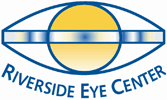Deciding to have cataract surgery can be a hard and complicated process. That’s why it is important to ask questions when meeting with your cataract surgeon.
All the questions you ask should help you build a relationship with your surgeon. Questions can range from how cataract surgery works to the surgeon’s medical history.
Your cataract surgeon should also discuss the risks associated with cataract surgery. One question you might not think of is how to pick your intraocular lens or IOL.
Not sure which IOL is right for your lifestyle? Keep reading for questions to ask during your consultation!
What is an Intraocular Lens?
One of the most important parts of cataract surgery is picking an IOL. During cataract surgery, you’ll have the natural lens of your eye removed.
Once the lens has been successfully removed, your surgeon inserts an IOL. This allows you to have clear vision again. IOLs are usually made from silicone or acrylic. These are both strong materials that make sure your improved vision lasts for a long time.
IOLs can also fix your vision and make it better than it was before you had cataracts! Depending on the IOL, refractive errors can be permanently corrected.
What are the different types of IOLs?
There are many different types, brands, price points, and functions for IOLs. Each IOL has positives and negatives that can range from durability to price.
When trying to decide on the type of IOL, it is best to look at what the IOL does best.
There are three main types of IOLs, they are monofocal, multifocal, and accommodating. These IOLs are good at improving your vision in different ways.
For example, if you wanted a lens that moves like your natural lens, an accommodating IOL is best. Accommodating IOLs are better for going from many points. They also make your close-up vision worse.
Monofocal IOLs are the simplest lens and they work well if you want to be able to focus on light from one distance. So, people are able to see far away well, but you have to wear glasses for the distances they cannot focus on.
You would need glasses to be able to play cards or see a golf ball on the tee or even when using the computer.
Multifocal IOLs allow you to be able to see at many distances. The con is that the quality of the image is not good when images overlay.
This makes your vision less sharp. But most people who pick multifocal IOLs do not need glasses once they have cataract surgery.
It is important to note that none of these lenses will correct astigmatism. If you have astigmatism, then you need a toric lens. Toric lenses are not made as monofocal or accommodating lenses.
Also, if you are looking to reduce the chances of a “glare” post-surgery, then consider the Aspheric Lens. It allows you to be able to see sharper and tell the difference between objects in different types of light.
Additionally, presbyopia-correcting multifocal lenses allow you to see far and close up. Two types of lenses are the ReSTOR® Lens Implant or the ReZoom™ Lens Implant. Post-surgery, you will not need eyeglasses or reading glasses.
Can I change what IOL I picked?
If you do not like the IOL you picked, you can reverse it to a point. Your eye’s natural lens is destroyed during the first surgery, so it is not fixable.
If you want to change your IOL, you can have cataract surgery again. There is minimal risk associated with having it again.
Considering cataract surgery in Auburn, Maine? Contact Riverside Eye Center for an appointment today!

